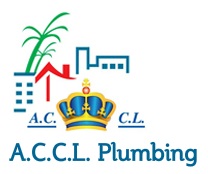Energy-efficient plumbing is a smart choice for homeowners looking to reduce their energy consumption, lower their utility bills, and contribute to a more sustainable environment. Here’s a look at the benefits of energy-efficient plumbing:
Benefits of Energy-Efficient Plumbing
1. Lower Energy Bills: Energy-efficient plumbing fixtures and appliances use less hot water, reducing energy consumption and lowering your utility bills.
2. Water Conservation: Low-flow fixtures and appliances help conserve water, reducing waste and supporting sustainable living.
3. Increased Property Value: Energy-efficient plumbing upgrades can increase your property’s value and appeal to potential buyers.
4. Reduced Maintenance: Energy-efficient plumbing systems are often designed with durability and low maintenance in mind, reducing the need for costly repairs.
5. Environmental Benefits: By reducing energy consumption and water waste, energy-efficient plumbing helps minimize your environmental footprint.
Key Energy-Efficient Plumbing Upgrades
1. Low-Flow Fixtures: Install low-flow showerheads, faucets, and toilets to reduce water consumption.
2. Energy-Efficient Water Heaters: Upgrade to energy-efficient water heaters, such as tankless or solar-powered models.
3. Insulated Pipes: Insulate hot water pipes to reduce heat loss and improve energy efficiency.
4. Smart Water Systems: Install smart water systems that detect leaks and provide real-time monitoring and alerts.
Tips for Implementing Energy-Efficient Plumbing
1. Assess Your Plumbing System: Evaluate your current plumbing system to identify areas for improvement.
2. Choose Energy-Efficient Fixtures: Select fixtures with the WaterSense label, indicating they meet EPA standards for water efficiency.
3. Hire a Professional: Consult a licensed plumber to ensure proper installation and optimization of energy-efficient plumbing systems.
4. Monitor Your Usage: Track your water and energy usage to identify areas for further improvement.
By embracing energy-efficient plumbing, you can enjoy cost savings, contribute to a more sustainable environment, and enhance your home’s value and comfort.

